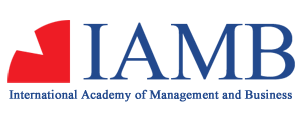IJMB Journal – Abstracts
International Journal of Management and Business
IJMB Volume X, Issue 1
A Framework of Holistic and Sustainable Personal Leadership Development
Sharon Anderson King Gabrielides, Ph.D.; Rica Viljoen, Ph.D.
Da Vinci University, South Africa; University of Johannesburg, South Africa
E-mail:sharon@keysteps.co.za; rica@mandalaconsulting.co.za
ABSTRACT
Organisations and organisational development (OD) practitioners are challenged in that there are no formalised design principles for successful personal leadership development interventions. Very few South African studies have tackled this problem, and the research on holistic and sustainable personal leadership development has not been formalised. Therefore, the aim of the study was to conceptualise and create such a framework, showing the underpinning principles of personal leadership development.
The qualitative inductive approach to the research was based on the phenomenological, constructivist, interpretive research philosophy. Grounded theory was used to build the theory of holistic and sustainable personal leadership development. The study adopted a multi-step design that collected multiple forms of research data from 29 participants employed at two organisations in Gauteng, including solicited data (EQ-i2.0 and BeQ™), in-depth interviews, personal reflections, focus groups, questionnaires, field notes and literature. Data was also collected (through in-depth interviews) from six organisational and leadership development experts.
The findings revealed five meta-insights into the process of holistic and sustainable leadership development. The first was that the facilitator was at the heart of the development process, interwoven through each theme and a catalyst for holistic and sustainable personal leadership development. The second insight was the importance of cohort learning; the safe, supportive, sacred environment created by the group was paramount in facilitating the individual’s and group’s development. Thirdly, the programme’s success and its sustainable results was dependant on the learners becoming vulnerable to challenge and shift their limiting paradigms. Moreover, the vulnerability of the facilitator enabled the learners to open up and become vulnerable. The fourth meta-insight was that for development to be sustainable, the learning must be experiential, personally meaningful and transferred and integrated to the learner’s context and reality. Lastly, overwhelming evidence points to the fact that learning is a journey that takes time if it is to be holistic and sustainable, and therefore quick fix programmes will not yield the desired results. From the meta-insights, a framework for holistic and sustainable leadership development was constructed.
In practice, the findings provide insights for OD practitioners, facilitators, coaches, managers and organisations responsible for developing leaders. The study also offers the principles of a successful intervention. This insight and understanding can contribute to increased success in the field of OD, leadership development and management.
Keywords: Holistic Development, Organisational Development, Personal Development, Personal Leadership, Leadership, Sustainability, Coaching, Facilitation, Emotional Intelligence
Click for full manuscript (PDF) or back to Volume 10-1, Table of Content.

